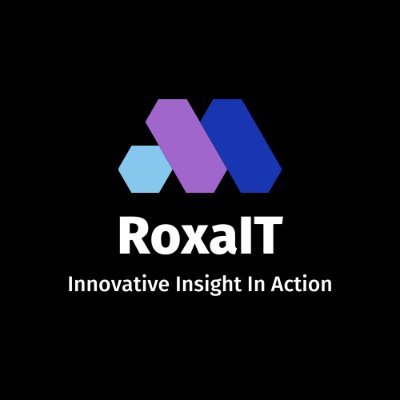Introduction
The cryptocurrency landscape is filled with numerous exchanges, each offering unique features, tools, and services to traders. Bitstamp and OKX are two well-known platforms that cater to both beginner and professional traders. While both exchanges provide excellent services, they differ in their offerings. If you’re torn between these two and wondering which one offers the best features and user support, you’re in the right place. This article will delve into the core attributes of both exchanges to help you decide which one suits your trading style and preferences.
Overview of Bitstamp
Founded in 2011, Bitstamp is one of the oldest and most reliable cryptocurrency exchanges in the market. Based in Luxembourg, it has gained a strong reputation for providing secure and user-friendly services. Bitstamp supports a wide variety of cryptocurrencies, including popular coins like Bitcoin (BTC), Ethereum (ETH), and Litecoin (LTC). The platform focuses primarily on spot trading and offers a simple, clean interface that is easy to navigate for traders of all experience levels.
Professional traders who use Bitstamp benefit from its advanced trading tools, including real-time charts, multiple order types, and a secure API for algorithmic trading. Moreover, the exchange operates in a regulated environment, ensuring that users can trade with confidence knowing that Bitstamp adheres to European regulations.
Overview of OKX
OKX is a rapidly growing exchange, founded in 2017, and has quickly gained prominence due to its extensive features and diverse offerings. Based in Seychelles, OKX provides a wide range of services, including spot trading, futures trading, margin trading, staking, and DeFi offerings. The platform stands out for offering a large variety of cryptocurrencies, including many lesser-known altcoins, making it a favorite among traders looking to diversify their portfolios.
OKX caters to professional traders by offering advanced tools such as spot and futures markets, margin trading with high leverage, and algorithmic trading features. The platform also provides a feature-rich mobile app for trading on the go and an intuitive user interface that enhances the trading experience.
Features and Trading Tools
When evaluating exchanges, the features and tools provided are some of the most important factors for traders. Bitstamp’s feature set is straightforward, focusing on core trading tools like limit orders, stop orders, and real-time charting. The exchange also offers margin trading, though it is relatively limited compared to other platforms. Bitstamp is known for its simplicity, making it a great choice for those who value ease of use without being overwhelmed by complex features.
OKX, on the other hand, offers a much more comprehensive range of features. In addition to spot trading, OKX supports futures and options trading, margin trading with up to 100x leverage, and staking. These features allow traders to employ more sophisticated strategies and gain exposure to various aspects of the cryptocurrency market. Furthermore, OKX’s algorithmic trading options, including its auto-trading bot and other advanced tools, provide more flexibility for experienced traders looking to automate their strategies.
For users who are particularly interested in decentralized finance (DeFi), OKX also offers DeFi products and services, allowing traders to access decentralized exchanges and liquidity pools. With its wide range of products and advanced tools, OKX provides more versatility than Bitstamp, making it an ideal choice for traders who want to explore every aspect of the crypto market.
User Support and Customer Service
Another key factor in choosing an exchange is the quality of customer support. Bitstamp has earned a strong reputation for its reliable and responsive support team. The platform offers 24/7 customer service through various channels, including live chat, email, and a comprehensive help center. The support staff is known for being professional and helpful in resolving issues quickly, which is crucial when dealing with time-sensitive trades or technical difficulties.
OKX also offers robust customer support, with 24/7 assistance available via live chat and email. The platform has a large knowledge base and a dedicated support team that can help users with technical issues or general inquiries. OKX’s help center is extensive, providing users with detailed guides and tutorials on how to use the platform and troubleshoot problems. Many users find OKX’s support to be highly responsive, with quick resolutions to inquiries and a positive overall experience.
However, while both platforms offer excellent support, OKX stands out with its multilingual support, catering to a broader international audience. This can be a significant advantage for users who do not speak English as their first language.
Security and Trustworthiness
Security is a critical factor for any cryptocurrency exchange, and both Bitstamp and OKX take it seriously. Bitstamp has a long-standing reputation for security and is regulated in the European Union, offering features like two-factor authentication (2FA), cold storage for funds, and regular security audits. The exchange also provides insurance coverage for users’ digital assets, ensuring that users’ funds are protected in case of a security breach.
OKX also provides robust security features, including 2FA, cold storage, and multi-signature wallets to ensure that funds are kept safe. Additionally, OKX has a strong track record of responding quickly to any security issues, providing users with confidence that their funds are secure on the platform. Although OKX suffered a security breach in 2020, the platform responded quickly, recovered most of the stolen funds, and reinforced its security protocols to prevent future incidents.
Fees and Cost Structure
Fees are always a concern for traders, and both Bitstamp and OKX have competitive pricing. Bitstamp employs a tiered fee structure, with fees decreasing based on 30-day trading volume. For example, users who trade less than $10,000 in a month pay a 0.50% fee per trade, while high-volume traders can pay as low as 0.10%. While Bitstamp’s fees are slightly higher than some competitors, they are transparent and easy to understand.
OKX has a much lower fee structure, offering a flat 0.10% trading fee for both makers and takers. Additionally, OKX provides discounts for users who hold its native token (OKB) or for high-volume traders, making it an attractive option for those looking to minimize trading costs. Overall, OKX offers one of the most competitive fee structures in the industry, which can be a major advantage for professional traders.
Conclusion
Both Bitstamp and OKX offer a wide array of features and tools that cater to professional traders, but their offerings differ significantly in some key areas. Bitstamp excels with its simplicity, security, and regulated environment, making it an excellent choice for traders who value a straightforward experience. On the other hand, OKX provides a much more comprehensive set of features, including futures trading, margin trading, staking, and DeFi services, which may appeal to traders looking for greater flexibility and more advanced options.
When it comes to user support, both platforms offer responsive and helpful customer service, but OKX stands out for its multilingual support, catering to a broader international audience. As for fees, OKX has a more competitive fee structure, which may be a key deciding factor for cost-conscious traders.
Ultimately, the right platform for you depends on your individual trading preferences and goals. Whether you choose Bitstamp or OKX, both exchanges provide high-quality services, ensuring that professional traders have the tools they need to succeed in the crypto market.

With 18 years of pioneering experience in the crypto space, Roxait excels in technical collaborations to develop cutting-edge decentralized solutions. As a Bitstamp expert, we bring deep expertise in cryptocurrency exchanges and blockchain technology to every project. Our commitment to innovation and expertise in blockchain technology has made us a trusted partner in driving the future of decentralized systems.